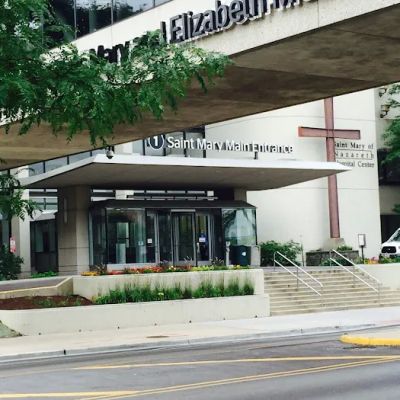Understanding the Different Types of Heart Surgery: Procedures and Options Explained
- 1 - What is Heart Surgery?
- 2 - Types of Heart Surgery
- 3 - Common Heart Surgeries and Procedures
- 4 - Risks and Recovery from Heart Surgery
- 5 - Real-Life Case Study: A Patient’s Journey Through Heart Surgery
- 6 - Conclusion and Choosing the Right Heart Surgery Option
1 - What is Heart Surgery?
Heart surgery refers to medical procedures performed to correct heart problems that cannot be treated with medications alone. These surgeries may involve repairing or replacing heart valves, bypassing blocked arteries, or even replacing the heart entirely. Heart surgery is often necessary for patients with severe heart disease, congenital heart defects, or other life-threatening conditions. It can be lifesaving and significantly improve a patient’s quality of life, but the specific procedure depends on the patient's unique condition and needs.
2 - Types of Heart Surgery
There are several different types of heart surgery, each designed to treat specific heart issues. The main types include:
- Coronary Artery Bypass Grafting (CABG): A procedure used to treat blocked or narrowed coronary arteries. Surgeons use a healthy blood vessel from another part of the body to bypass the blocked artery and restore blood flow to the heart.
- Heart Valve Surgery: This surgery is done to repair or replace damaged heart valves. It can involve repairing the valve or replacing it with a mechanical or biological valve.
- Aortic Aneurysm Surgery: A procedure to repair a weakened section of the aorta, the large blood vessel that carries blood from the heart to the rest of the body.
- Heart Transplant Surgery: In severe cases of heart failure, a heart transplant may be necessary. The diseased heart is replaced with a donor heart to restore normal function.
3 - Common Heart Surgeries and Procedures
Some of the most common heart surgeries performed today are designed to address the buildup of plaque in the coronary arteries, damage to the heart valves, or irregular heart rhythms. A few of the most popular and widely known procedures include:
- Coronary Artery Bypass Grafting (CABG): Often referred to as "bypass surgery," this procedure reroutes blood around blocked or narrowed coronary arteries to improve blood flow to the heart muscle.
- Valvuloplasty: This surgery repairs a leaking or narrowed valve in the heart. It is often less invasive than a valve replacement and can be performed using a catheter.
- Pacemaker Implantation: A pacemaker is a small device implanted under the skin to help regulate abnormal heart rhythms.
4 - Risks and Recovery from Heart Surgery
As with any major surgery, heart surgery carries certain risks. These may include infection, bleeding, blood clots, and complications related to anesthesia. However, with advances in medical technology and surgical techniques, the risks have decreased significantly. The recovery process varies depending on the type of surgery, but generally involves a stay in the hospital for several days followed by several weeks of rest and rehabilitation. It is crucial for patients to follow post-operative care instructions, including attending follow-up appointments and gradually returning to physical activity.
5 - Real-Life Case Study: A Patient’s Journey Through Heart Surgery
John, a 58-year-old man, was diagnosed with severe coronary artery disease, which caused him to experience chest pain and shortness of breath. After undergoing several tests, his doctors recommended coronary artery bypass grafting (CABG). The surgery was a success, and after a few weeks of recovery and rehabilitation, John regained his strength and was able to return to his normal lifestyle. This case illustrates the importance of timely intervention and how heart surgery can significantly improve a patient's quality of life.
6 - Conclusion and Choosing the Right Heart Surgery Option
Understanding the different types of heart surgery is crucial in making informed decisions about your health. The type of surgery you may need will depend on the specific heart condition you have. It is essential to work closely with your healthcare provider to determine the best treatment plan. If you or a loved one is facing heart surgery, take the time to explore your options, ask questions, and seek expert advice. To learn more about heart surgery options or to schedule a consultation, visit our trusted healthcare partner at Rob Travel, where you can find expert recommendations and guidance for your heart health needs.




















